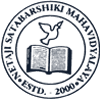Histort of the College
The Journey Ahead
Affiliation from the University of Calcutta arrived on 8th December, 2000, and the much-awaited teaching-learning process took off at the adjacent Sanskriti Sangha Girls’ School in the morning shift on & from 15th January, 2001. The college owes a lot of thanks to the Sanskriti Sangha Girls’ School authority for providing the basics for the beginning. At the outset only 35 students were enrolled. The present two-storey building of the college was underway very soon. Funds or financial help either from the Government of West Bengal or India was a far cry in those days. MP LADS and MLA LADS funds were the only financial resource. When Nani Kar died suddenly of heart attack, his eldest son, Sri Babul (Sabyasachi) Kar, took over where his father left and carried on the tough task of raising the college.The present building was finally built and was inaugurated by the then Chief Minister of West Bengal, (now late) Jyoti Basu, accompanied by the then MIC of Higher Education,Prof. Satya Sadhan Chakraborty on 2nd June, 2002.
From such humble start, the college initiated its journey, stretching over sixteen years. The college now has an impressive two-storey building comprising 36 rooms and 16 class rooms, including specific rooms allotted to each Honours Departments and the Department of Physical Education, which like the Department of Music is a unique addition to the academia of the institution. The college has one ICT and AC-fitted Seminar Room and two large rooms with audio-systems and LCD projectors, a Wi-Fi enabled library with a well-furnished reading room meant for both Teachers and students. The campus of the college is fully Wi-Fi enabled.
Meanwhile, West Bengal State University was established in 2008 in Barasat and the affiliation of all of the 57 colleges in the district of North 24 Parganas under the University of Calcutta were shifted to the new university by an act of the Legislative Assembly of West Bengal.
In 2008 the first Governing Body of the college was formed with Sri Babul (Sabyasachi) Kar as the 1st President. As per the Calcutta University Statutes there were four Teacher Representatives elected/nominated from among and by the substantive teachers of the college excluding the Principal, who remained as the ex-officio Secretary of the Governing Body; two Representatives of the Substantive Non-teaching Staff were selected by them to be sent to the Governing Body; two Nominees each of the university and the Director of Public Instruction were sent to the Governing Body; the Chairperson of the Municipality of the area and one Representative of regular students of the college, normally, the General Secretary of the duly elected Students’ Union, became a member of the GB. It took over from the erstwhile Prastuti (Organising) Committee which managed the affairs since the inception.
The number of students getting enrolled in the college has been increasing steadily. To date the roll strength of college now stands nearly at three thousands. The reason behind this steady rise is not too difficult to figure out. The teaching-learning-evaluation infrastructure of the college is conducive to academic upliftment. It has struck an exemplary chord among the neighbouring schools and colleges. The results of university examinations speak for our attainment despite being saddled with shortage of funds, manpower and infrastructure.
The college has earned a name among the higher education-seekers so much so that boys and girls from far-flung areas, village backwaters, from among minority and under-privileged sections of the population crowd up the college counters during the admission period to get into the 1st year class of BA & BSc. The minority and backward class students comprise the larger portion of the roll-strength.
At the moment honours courses in nine subjects are offered to the new-entrants to the college — both in B.A. and B.Sc. The subjects are Bengali, English, History, Political Science, Geography, Sociology, Education, Sanskrit and Music. Thirteen subjects are there for General courses — Bengali, English, History, Political Science, Geography, Sociology, Music, Physical Education, Education, Sanskrit, Economics, Mathematics and Journalism and Mass Communication. At different points of time, these subjects have been introduced, mainly on demand from the students and parents in general. Bengali, Sociology and Music in B.A. and Geography in B.Sc are the subjects in which some students have made excellent results over the years. Students in other subjects are no mean achievers, though. The curricula and syllabi are ever since formulated by the Board of Studies (BOS) of the affiliating university, WBSU.
